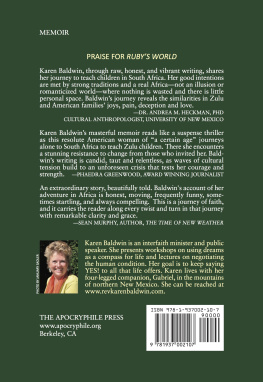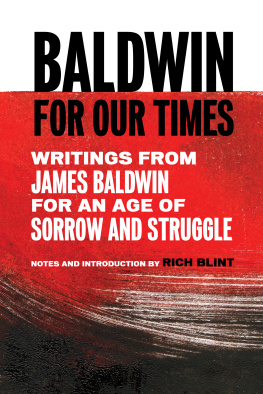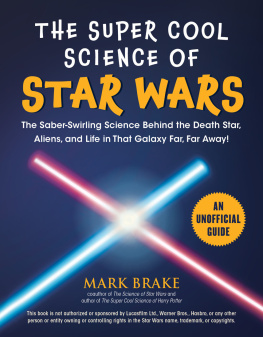First published 2008 by Paradigm Publishers
Published 2016 by Routledge
2 Park Square, Milton Park, Abingdon, Oxon OX14 4RN
711 Third Avenue, New York, NY 10017, USA
Routledge is an imprint of the Taylor & Francis Group, an informa business
Copyright 2008 Taylor & Francis.
All rights reserved. No part of this book may be reprinted or reproduced or utilised in any form or by any electronic, mechanical, or other means, now known or hereafter invented, including photocopying and recording, or in any information storage or retrieval system, without permission in writing from the publishers.
Notice:
Product or corporate names may be trademarks or registered trademarks, and are used only for identification and explanation without intent to infringe.
Library of Congress Cataloging-in-Publication Data
Baldwin, John D., 1941
Ending the science wars / by John D. Baldwin.
p. cm.
Includes bibliographical references and index.
ISBN-13: 978-1-59451-559-0 (hardcover : alk. paper)
1. ScienceSocial aspects. I. Title.
Q175.5.B34 2008
306.45dc22
2007052277
ISBN 13 : 978-1-59451-559-0 (hbk)
ISBN 13 : 978-1-59451-560-6 (pbk)
Designed and Typeset in Adobe Garamond by Straight Creek Bookmakers.
E VER SINCE THOMAS KUHN (1962) PUBLISHED HIS BOOK, The Structure of Scientific Revolutions, numerous academicians have developed criticisms of science from multiple different perspectives (Feyerabend, 1970; Foucault, 1973, 1980; Baudrillard, 1984; Collins, 1975, 1982; Knorr-Cetina, 1981; Barnes and Bloor, 1982; Shapin, 1982; Laudan, 1984; Latour, 1987, 1988, 1999; Keller, 1985; Haraway, 1989, 1991; Bloor, 1991, 1992; Harding, 1991; J.R. Brown, 2001; Stolzenberg, 2001; David, 2005). These triggered the science wars.
Several defenders of science have attempted to show that science actually does have unique methods that give it far more power than the critics suggest (Pickering, 1984, 1995; Giere, 1988, 1999, 2006; Kitcher, 1993, 2001; Longino, 1990, 2002; Haack, 1993, 1996, 1998, 2003; Goldman, 1995, 1999; Soloman, 2001; Da Costa and French, 2003). The heated exchanges between the attackers and defenders of science have been raging for years without resolution.
A few of the defenders of science have noticed that pragmatism is a philosophy that is especially useful in defending science (Pickering, 1984, 1995; Giere, 1988, 1999, 2006; Longino, 1990, 2002; Delaney, 1992; Haack, 1993, 1996, 1998, 2003; Kitcher, 2001; Da Costa and French, 2003; Tetens, 2004). Some of the ideas of Charles Peirce, William James, and John Deweythree of the original pragmatist philosophershave been put forth in defense of science; but the work of the youngest pragmatist, George Herbert Mead, has been neglected to date. This omission has left both the critics and the defenders of science shortchanged because Mead benefited from discussions withand reading the works ofthe earlier pragmatists, allowing him to develop a more sophisticated analysis of science than his predecessors had.
Because Meads explanation of science uses constructivist logic and language, it speaks especially well to many of the critics of science who draw upon constructivism. It also shows scientists that their empirical work is not incompatible with theories that treat science as a long series of social reconstructions. As a consequence, Meads theories about empirical work can benefit both sides in the science warsgreatly reducing the conflicts between the two opposing camps.
Although I have been studying Meads theories since 1980, it is only in the past five years that I have realized that Meads work provides a more powerful defense of science than has yet been presented in the science wars. Meads theory not only shows how science can be anchored with pragmatism, it does so with tools that help both the critics and defenders of science understand the workings of science in terms of social reconstructions. This knowledge allows us to move beyond the stalemated logic of the science wars and unleash more intellectual creativity, advancing our theories of science and all other types of knowledge.
Acknowledgments
I would like to thank several of my colleagues for helping me develop the ideas in this book. I am deeply grateful to my old friends Otis Dudley Duncan and Tom Shibutani, who spent countless hours challenging my logic and sharpening my thinking about Meads work during many lengthy and stimulating conversations. They both died in 2004, and I miss them. I appreciate William Bielby encouraging me to start this phase of my research and writings about Meads theories. I owe a debt of gratitude to Jonathan Turner for his continued support and intellectual feedback during this project. I also thank the many students from my course on pragmatism who have debated the details of Meads theories with me. I owe a debt to numerous anonymous reviewers for critical feedback on this and my previous manuscripts about Meads work. And especially I thank my wife, Janice, for countless hours of stimulating conversations about pragmatism, science, and the complex ways in which our minds work as we grapple with creating our lives.
Technical Notes
I have attempted to summarize Meads ideas concisely, providing many direct quotes from Meads work to document how he worded his position. This documentation is especially important because many sociologists and philosophers have not focused on Meads theories of science. One reason why my direct quotations from Mead tend to be short is that Mead often used long complex sentences, where brevity would have worked well. Mead (1910a: 106*) honestly acknowledged that some of his writings were obscure.
In order to help readers locate quotations from some of Meads less easily accessible articles, I have used an asterisk after page referencessuch as Mead (1910a: 106*)to direct readers to Meads works that have been compiled by Andrew Reck (1964). In these cases, the reference gives the original year of Meads workfollowed by the page number in Reck (1964), plus an asterisk. Thus a quote stating that the scientific method is not an agent foreign to the mindfollowed by the reference Mead (1923: 255*)reveals the date of Meads original work and the page numbers where the quote is found in Recks collection of Meads work.













